Fly tying threads
( number of products: 45 )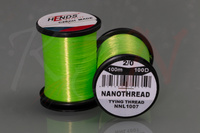
Hends NanoThread 100D 2/0 100m NNL1007 Chartreuse

Thread Semperfli Nano Silk 300D 1/0 Saltwater & Hair Stacker White

Thread Semperfli Nano Silk Streamer 200D 3/0

Thread Semperfli Nano Silk Saltwater 200D 3/0 Big Game

Thread Semperfli Nano Silk Saltwater 100D 6/0 White

Thread Semperfli Nano Silk 100D Predator 6/0

Hends Body Thread
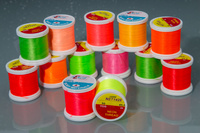
Hends Neon Thread UV

Thread Hends Synton 0.05x2

Hends NanoThread 20D 22/0 100m

Hends NanoThread 40D 16/0 100m - GSP thread

Hends NanoThread 75D 8/0 100m
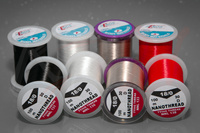
Hends NanoThread 30D 18/0 100m
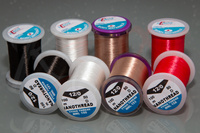
Hends NanoThread 50D 12/0 100m

Veevus Power Thread 240D
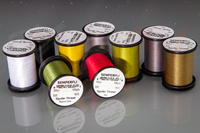
Thread Semperfli Spyder Thread 18/0 30D

Thread Semperfli Classic Waxed Thread 70D 12/0 Black

Thread Semperfli Nano Silk 50D 12/0
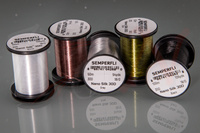
Thread Semperfli Nano Silk Ultra 30D 18/0
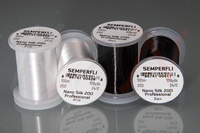
Thread Semperfli Nano Silk Pro 20D 24/0

Veevus Power Thread 140D
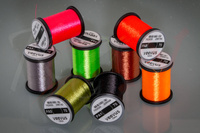
Veevus Power Thread 70D

Veevus GSP Thread 200D White

Veevus GSP Thread 150D White

Veevus GSP Thread 100D White
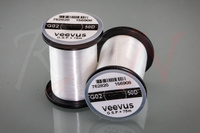
Veevus GSP Thread 50D White
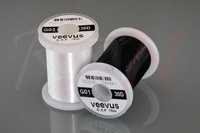
Veevus GSP Thread 30D White

Veevus GSP Thread 50D Black

Veevus GSP Thread 30D Black

Veevus Kevlar Thread 200D

Veevus Thread 6/0
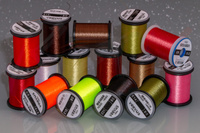
Veevus Thread 8/0

Veevus Threads 16/0

Veniard Glo-Brite floss 25 yd
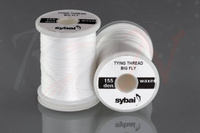
Sybai Tying Thread Big Fly 155 Den
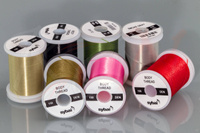
Sybai Body Thread 150 Den
- 1
- 2
Fly tying thread - the most important fly tying material
Fly tying threads are tying material that we need to have to tie a fly fishing flies properly. The right thread must be characterized by the right breaking strength, thickness adjusted to the fly pattern being made, and also color.
The quality of the thread is very important, in particular, we intend to tie and attach the material to the hook shank more tightly. Such a strong thread is useful when tying larger flies, when we make a head from deer or deer hair, we make a wing from hair and many other situations.
Another feature of threads is their profile, i.e. whether they are flat or round. Contrary to appearances, this is important when making selected patterns or using specific fly tying materials. Of course can be waxed thread or not.
Threads are wound on spools of different sizes, the vast majority of manufacturers use standard spools that best fit 99% of bobbins available on the fly tying tool market. However, there are brands that supply threads on narrower spool and smaller capacity.
Tying thread you can use as a main thread, but also you can use it as ribbing when you tie a nymph, dry or wet fly body.
Thickness markings of tying threads
The sizes of fly threads are different and, in addition, manufacturers describe them in two ways.
Firstly, the thickness of the thread for tying flies can be described, for example, 8/0 or 16/0, what does ro mean? To make it simpler, I will write 3/0 is a thick thread, 6/0 thicker, 8/0 thinner, and 16/0 is super thin for tiny flies. Such markings are used, for example, by the well-known Canadian brand UNI, which has high-quality threads.
The second method used by manufacturers is Denier, and here the marking is a number, the smaller the number, the thinner the thread. For example, 70 Denier is a thin thread, 140 is already a thicker thread, and 210 or 280 are already thick threads.
Which tying thread should I choose?
Feeling the strength of the thread and therefore what we can afford with it comes with time and experience, but at the beginning a few points below can help here.
- dry and wet flies, nymphs - here it is worth buying a thin thread 8/0 or about 70-80 Denier.
- trout streamers - here you need a stronger, i.e. thicker thread 6/0 or 140 Denier (of course you can also use thinner ones, but you have to be careful not to break it)
- pike flies and other large saltwater streamers - 3/0 or 210 or 280, the strength and durability of such a thread is the most important thing. But do not forget about GSP thread, this is extra strong fly tying thread - in my opinion amazing product.
